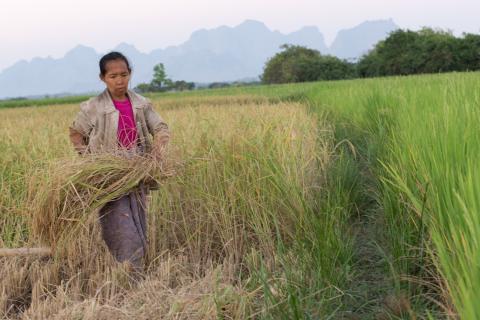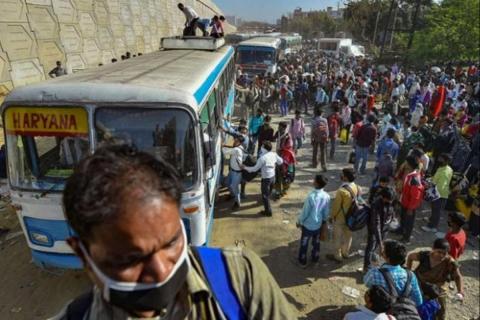Join us for the Land Rights and COVID-19 webinar and discussion series, which is presented by Land Portal, Landesa, the Global Protection Cluster HLP AOR and GIZ, with organizing support from Environmental Peacebuilding Association, LANDac, New America and the UK's Department for International Development (DFID). The 2nd webinar in the series on Eviction response during and after COVID-19 will take place on Wednesday, May 27th, 2020.
Join us for a webinar co-hosted by the the Environmental Peacebulding Association, GIZ, the UNHCR's Global Protection Cluster on Housing, Land and Property (HLP) Area of Responsibility (AoR), LANDac, Landesa, the Land Portal Foundation, New America and the UK's Department for International Development (DFID) on Eviction response during and after COVID-19.
Evictions have emerged as the most common housing, land and property risk globally associated with the COVID-19 pandemic in spite of the fact that access to adequate housing is essential to reduce the spread of the virus. These risks of evictions arise due to a combination of factors, the main one being the suspension and loss of livelihoods on a massive scale resulting from public health prescriptions resulting in an inability to pay rent. Opportunistic actors (governments, armed groups, and landlords) may also use this crisis to evict people from houses, camps and informal settlements. Lastly, evictions are also a major risk for public health workers and others who risk exposure as a result of their professions, people who have been infected by the disease, and other marginalized populations due to stigma and fear.
Even in non-pandemic times, evictions are humanitarian crises – with lasting effects on the health, well-being, education, and livelihoods of not only those who have been evicted, but communities as a whole.
Not all governments have enacted measures to secure housing tenure for tenants and occupants of camps and informal settlements in response to this crisis. Among those jurisdictions who have put in measures, most have moved to enact moratoriums on eviction and utilities shut-offs, and a minority have put in measures to reduce rents or offer rental subsidies to the most vulnerable households. However even these measures will expire in the coming weeks and months even when economies have not fully “reopened” and livelihoods revived, leaving renters with several months worth of unpaid rent. What happens then? And what is happening to vulnerable tenants and occupants in jurisdictions where no measures to mitigate these risks have been put into place, or governments do not have the capacity to implement the measures they pass?
Being able to respond to this emerging crisis will require practitioners, donors, activists and policy makers to deploy all of the tools and best practices they have at their disposal in order to address the massive, unprecedented need. As such, this webinar will convene some leading thinkers on eviction, and ask them to draw on their experiences to help orient our collective thinking on how to respond to this crisis during COVID-19 and in the months and years after when its effects will continue to linger.
Facilitator

Ibere Lopes - Roving
Housing, Land and Property Specialist to Global Shelter Cluster
IOM
Panelists

Joseph Jackson
ICLA Specialist
Norwegian Refugee Council Somalia

Nathalia Watanabe
Shelter Specialist
Norwegian Refugee Council Jordan

Theresa Williamson
Ph.D.
Founding executive director
Catalytic Communities

Robert Lewis-Lettington
Chief of Section
Land, Housing and Shelter
UN Habitat













